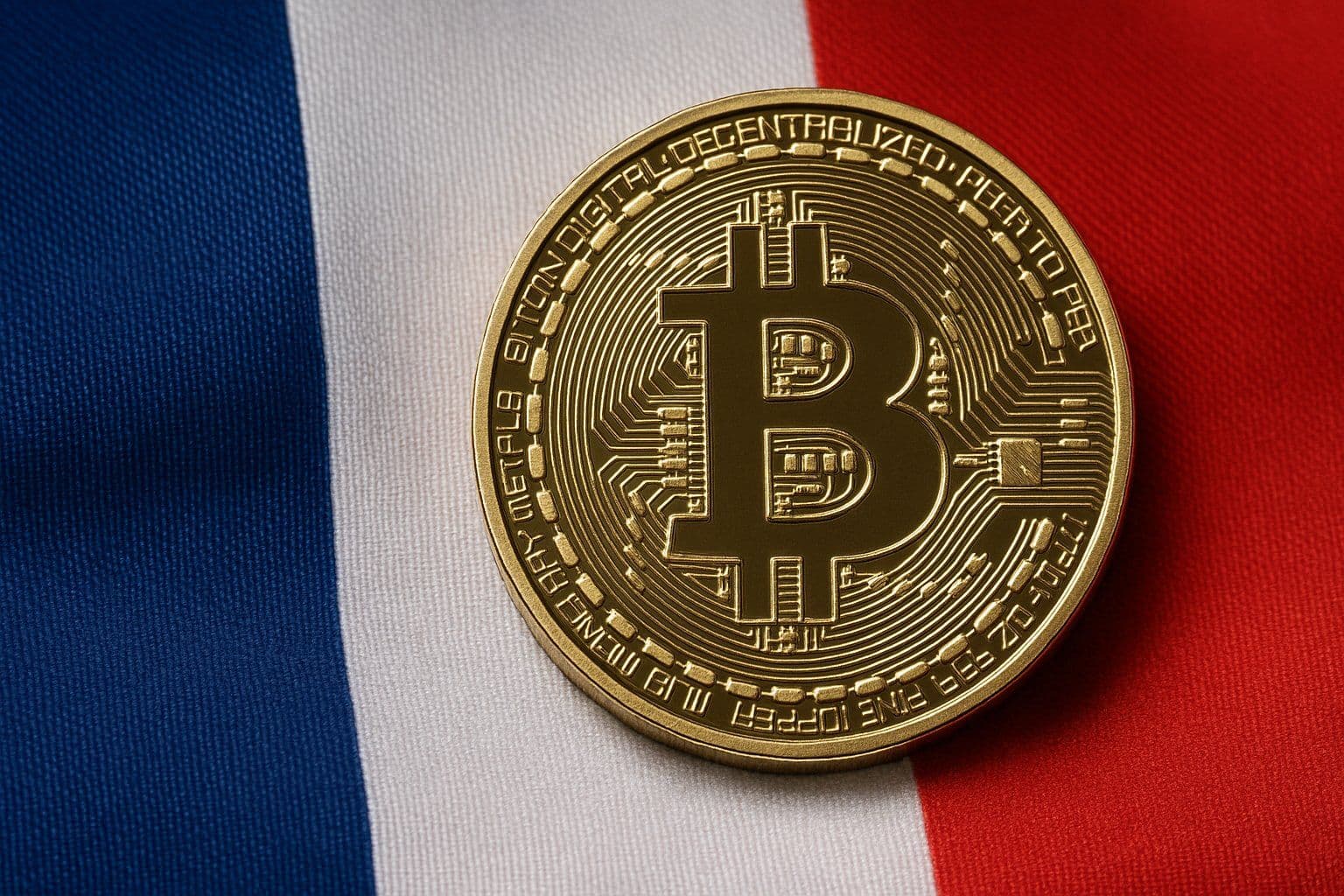A bill in France proposes acquiring 2% of Bitcoin’s total supply, around 420,000 BTC, for a national strategic reserve. This move could ignite a geopolitical race for digital assets, forcing other nations to reconsider their own reserve strategies.
A legislative proposal introduced in France’s National Assembly aims to establish a national Bitcoin Strategic Reserve, outlining a plan to acquire up to 2% of the cryptocurrency's total supply. The bill, presented on October 28 by lawmakers from the Union of Rights for the Republic (UDR) party, details an ambitious strategy to purchase approximately 420,000 BTC over a seven to eight-year period. If enacted, this move would represent the first major European economy to formally integrate Bitcoin into its sovereign financial strategy, potentially triggering a geopolitical domino effect among both allies and rivals.
The proposal suggests a multi-faceted approach to building this digital treasury. It includes direct market purchases funded partially through the country’s popular Livret A and LDDS savings funds, the retention of Bitcoin seized in legal proceedings, and a state-backed mining initiative. This mining operation would leverage France's significant surplus nuclear and hydroelectric power, aligning the acquisition strategy with national energy independence goals.
While the bill faces significant political hurdles, its introduction alone has elevated the global conversation around Bitcoin as a strategic reserve asset. The core question is no longer whether nations will adopt Bitcoin, but which will move first and what the consequences will be for the global financial order.
Deconstructing the French Proposal
The bill, spearheaded by lawmakers including Éric Ciotti and Philippe Latombe, is more than a simple treasury allocation. It presents a comprehensive vision for integrating digital assets into the French economy. Key components include:
- A Strategic BTC Reserve: The central aim is to accumulate 420,000 BTC, positioning it as "national digital gold" to enhance France’s monetary resilience and financial sovereignty.
- Public Mining Initiative: The proposal seeks to use France's abundant and low-cost surplus energy from nuclear and hydroelectric sources for Bitcoin mining. This would create a non-market acquisition channel, reducing reliance on direct purchases.
- Acquisition Mechanics: The plan outlines a gradual accumulation process, projecting a timeline of seven to eight years. This prolonged schedule is designed to minimize market impact from large-scale purchases.
- Taxation and Payments: The bill explores provisions for citizens to pay taxes using Bitcoin, subject to constitutional review. It also promotes the use of euro-denominated stablecoins for daily transactions, suggesting tax exemptions on small payments to encourage adoption.
This proposal represents a clear strategic pivot, treating Bitcoin not merely as a speculative investment but as a core component of national financial security, similar to gold or strategic oil reserves.
The Geopolitical Game Theory of a Bitcoin Rush
France’s move, even as a proposal, forces other nations to confront a critical game-theory dilemma. If a G7 nation begins systematically accumulating a significant portion of Bitcoin’s finite supply, the cost of inaction for others rises exponentially. This could spark a sovereign "fear of missing out" (FOMO) that escalates into a global reserve race.
Potential responses could vary across geopolitical blocs:
- European Union Peers: Germany, with its industrial base and fiscally conservative history, might feel compelled to follow suit to maintain its leadership position within the EU. A French move could accelerate discussions around a unified EU digital asset strategy or prompt independent actions from other member states.
- BRICS Nations: Countries like Russia and China, already seeking alternatives to the U.S. dollar-denominated financial system, may view sovereign Bitcoin accumulation as a strategic imperative. A move by a key NATO member could be interpreted as a validation of this strategy, accelerating their own acquisition plans.
- United States: While the U.S. currently holds a significant amount of Bitcoin through asset seizures, it lacks a formal policy for strategic accumulation. France’s proposal could pressure Washington to clarify its stance and potentially formalize Bitcoin’s role as a reserve asset.
The market implications of such a race would be substantial. A coordinated or competitive acquisition by multiple nations would place immense and sustained demand on Bitcoin’s limited supply, which is capped at 21 million coins. With an estimated 420,000 BTC targeted by France alone, the absorption of available liquidity could drive significant price appreciation, making it progressively more expensive for slower-moving nations to build a meaningful position.
Feasibility, Risks, and Logistical Hurdles
Despite the strategic appeal, executing such a plan presents considerable challenges. The UDR party holds only 16 of 577 seats in the National Assembly, making the bill’s passage in its current form unlikely without broad multiparty support.
Beyond politics, logistical and technical risks are significant:
- Procurement and Slippage: Acquiring 420,000 BTC, even over several years, would require sophisticated execution to avoid slippage—the difference between the expected price of a trade and the price at which it is executed. The government would likely need to use over-the-counter (OTC) desks and algorithmic trading strategies to minimize market impact.
- Custody and Security: Securing a sovereign-level Bitcoin holding is a monumental task. France would need to develop a national custody solution with unparalleled security protocols, likely involving multi-signature wallets, geographically distributed keys, and defense-grade physical security to protect against cyber and physical threats.
- Regulatory and Legal Constraints: The proposal may conflict with existing EU regulations, including the Markets in Crypto-Assets (MiCA) framework. Harmonizing a national Bitcoin strategy with broader EU financial policy would be a complex undertaking.
- Energy and Environmental Optics: While the plan specifies using surplus clean energy, any state-sponsored mining initiative would face intense scrutiny regarding its environmental impact and energy consumption, becoming a focal point for political opposition.
The Dawn of a New Asset Class
France’s proposal may ultimately be more symbolic than legislative, but it marks an inflection point. It forces governments worldwide to evaluate Bitcoin not just as a technological curiosity but as a potential cornerstone of future sovereign wealth strategy. The debate is no longer confined to crypto forums; it has entered the halls of parliament in a major world power.
Whether this bill passes or fails, the idea has been planted. Financial strategists in capitals from Washington to Beijing are now likely modeling scenarios of a world where nations compete for a limited supply of digital gold. The key elements to watch will be the level of political support the French bill garners, the official reactions from other G7 and BRICS nations, and any subsequent moves by corporate or sovereign wealth funds to increase their Bitcoin allocations. The race may not have officially started, but France might have just fired the starting pistol.

